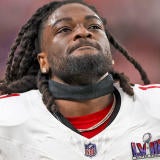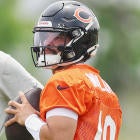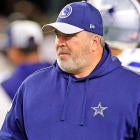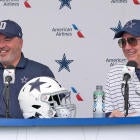Aaron Berry was the last straw.
Lions on Monday following his arrest in the early hours of Saturday morning in his hometown of Harrisburg, Pa. Berry allegedly pointed a loaded gun at three individuals, and he was booked on multiple counts of simple assault. It was the second time he'd been taken into police custody in less than a month; he was charged with a DUI offense June 23. His arrest marked the seventh time a Lions' player had run afoul of the law during the 2012 offseason, and although Berry alone isn't to blame for all of the Lions' perceived discipline issues, the decision to release him was made easier thanks to two factors:
First, he was responsible for both of the two most recent arrests involving Lions' players.
Second, he just wasn't an important enough piece of the Lions' puzzle to warrant another chance -- and that made it easy for Lions' management to take the hard line regarding his actions.
Mikel Leshoure (two marijuana-related offenses) and DT Nick Fairley (DUI and marijuana charges) didn't exactly bolster the team's image this offseason. Fairley and Leshoure, however, figure prominently in Detroit's future plans. Berry was a presumptive starting CB entering training camp, but he faced a lot of competition for his job.
In the end, Fairley and Leshoure are still on the roster. Berry isn't.
That begs the question: After six previous offseason arrests, did Lions management feel as though their pleas for discipline -- especially among repeat offenders -- was falling on deaf ears? Team president Tom Lewand's statement following Berry's release seems to indicate that's exactly the case. “We have repeatedly stressed to everyone in our organization that there will be appropriate consequences when an expected standard of behavior is not upheld,” Lewand said.
Translation: See what we did here, guys? This man was in the mix for a starting job, and we cut him because he didn't learn from his mistakes.
Berry's time in Detroit was marred by injury, and his play hadn't earned him the insular protection sometimes afforded players whose effort has made them too valuable to discard. That left him vulnerable to become the example the team needed to begin rebuilding the franchise's damaged reputation, even at a position like CB that remains a major question mark for 2012.
Lions' management learned the hard way that, with some individuals, asking nicely won't register enough to foster a change of behavior. They're clearly hoping that the prospect of losing a job will serve as a needed deterrent against future incidents Detroit can ill afford if it wants to build on the progress made under Jim Schwartz.
For the sake of the franchise -- and Lions' fans -- they'd better be right.
















